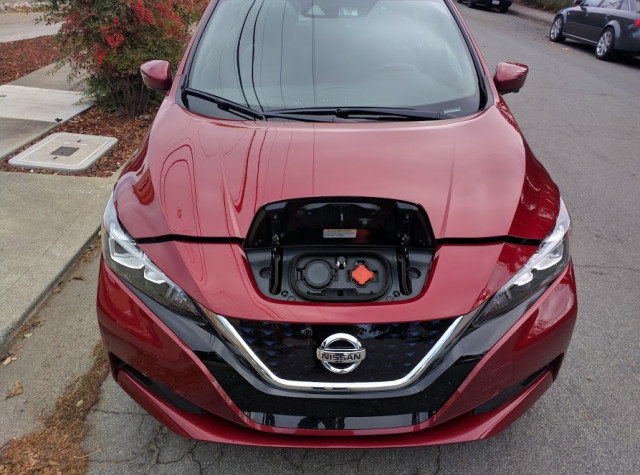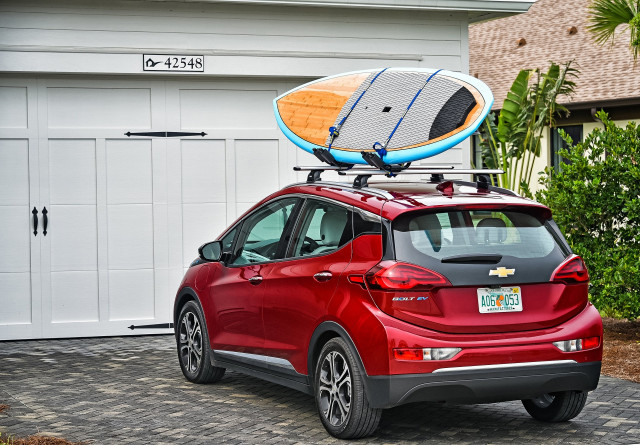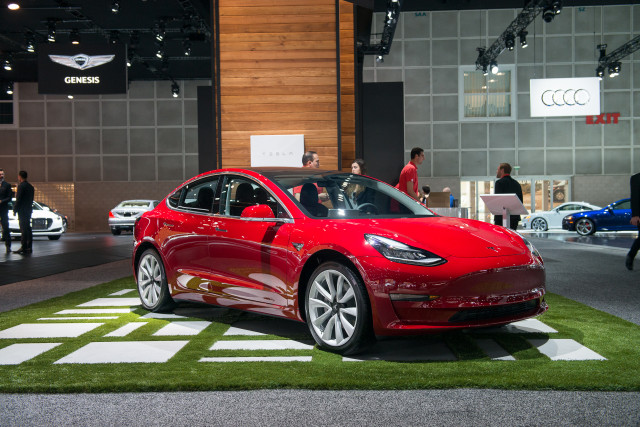Plug-in electric car sales for Jan fall after year-end surge
While 2017 saw higher U.S. sales of plug-in electric cars than any previous year, expectations for 2018 sales are running even higher.
The Chevrolet Bolt EV will be available in all 50 states for a full year, the new 2018 Nissan Leaf with a 151-mile range is now on sale, and of course the Tesla Model 3 will be a factor.
How much of a factor remains to be seen, as deliveries seem to have risen during January but numerous owners have told Green Car Reports of quality problems with their newly delivered Teslas.
DON'T MISS: Electric-car sales in 2017 set new record: just under 200,000
We won't know much about Tesla deliveries in any case until early April's first-quarter deliveries report, unless CEO Elon Musk chooses to discuss it during the February 7 conference call on last year's company financial results.
Meanwhile, Thursday is sales-reporting day, so here's what we know as the figures start to roll in.
Chevrolet logged sales of 1,177 Bolt EVs and 713 Volts, versus 3,227 and 1,937 in December—underscoring the double effect of the year-end sales push and lower plug-in sales in winter months.
Deliveries of the Nissan Leaf, which fell to just 102 in December as stocks of the outgoing 2017 model approached zero, were 150.
The company did not initially break out how many of those were the new 2018 Leaf, which went on sale January 23. We've asked for clarification.
READ THIS: China plug-in electric vehicle sales in 2017: almost four times those in the U.S.
Other battery-electric vehicles with notable sales volume to be reported on Thursday include the BMW i3 and Volkswagen e-Golf.
Among plug-in hybrids, the list comprises the Audi A3 e-tron, Honda Clarity Plug-In Hybrid, and Toyota Prius Prime, along with the T8 versions of the Volvo XC60 and XC90 crossover utility vehicles.
Ford will report sales of its Energi plug-in hybrid versions of the Fusion mid-size sedan and the now-discontinued C-Max compact tall wagon on Friday, along with those for its Focus Electric compliance car.
One factor that may affect sales later this year will be the start of the phasing-down of federal income-tax credits for purchase of a battery-powered vehicle for a couple of makers as each reaches 200,000 plug-in vehicles sold in the U.S.
Tesla seems likely to hit that number first. While it refuses to break out its deliveries by market, its U.S. sales thus far are likely 160,000 to 170,000 electric cars.
CHECK OUT: When do electric-car tax credits expire? (updated for 2018)
Through December 2017, GM had sold 168,183 plug-in cars—Chevy Volts, Spark EVs, and Bolt EVs, plus Cadillac ELRs and CT6 PHEVs—and Nissan had sold 114,825 Leafs.
Note that not every one of those U.S. sale results in a credit that counts toward the total, either--although most of them will.
We will update this report over the next two days as additional sales data comes in.
EDITOR'S NOTE: As of May 2017, this monthly report covers only plug-in electric cars with sales of 100 units a month or more—with occasional exceptions for new models, exceptionally large changes in sales volume, or other newsworthy events.



Email This Page